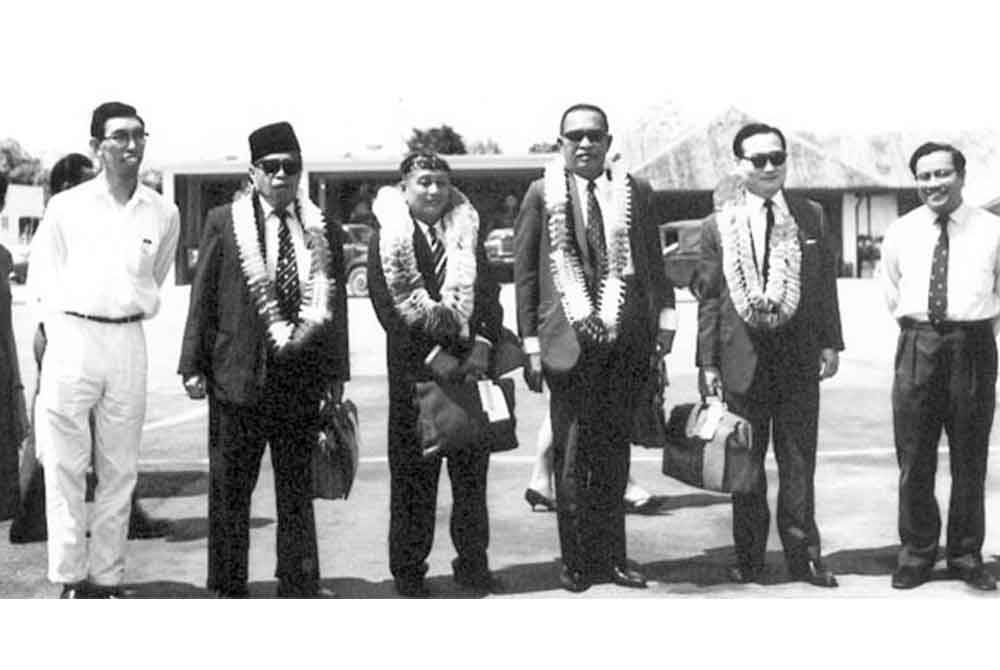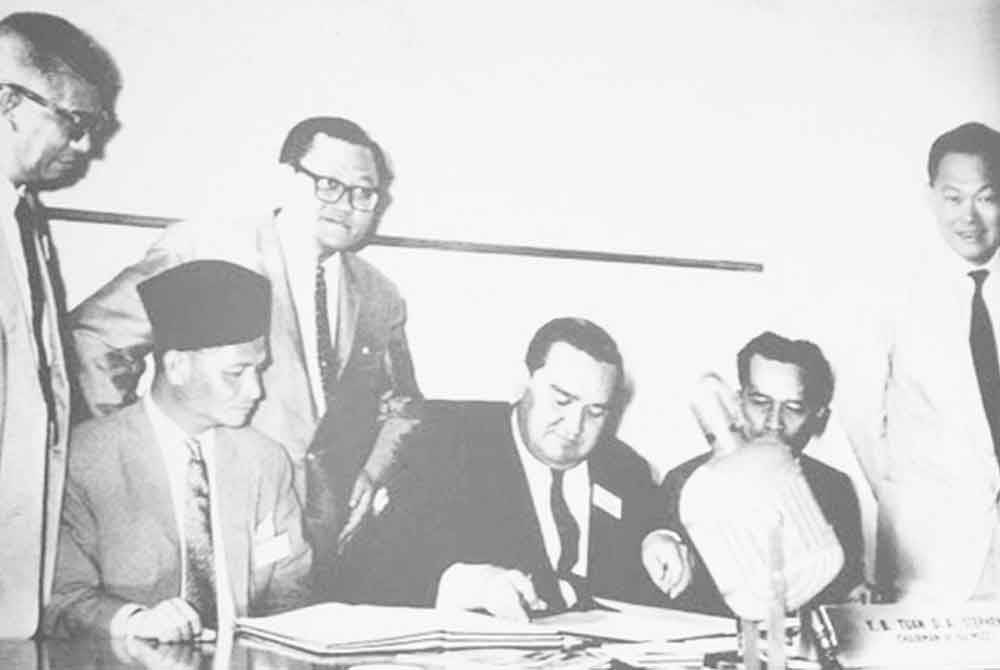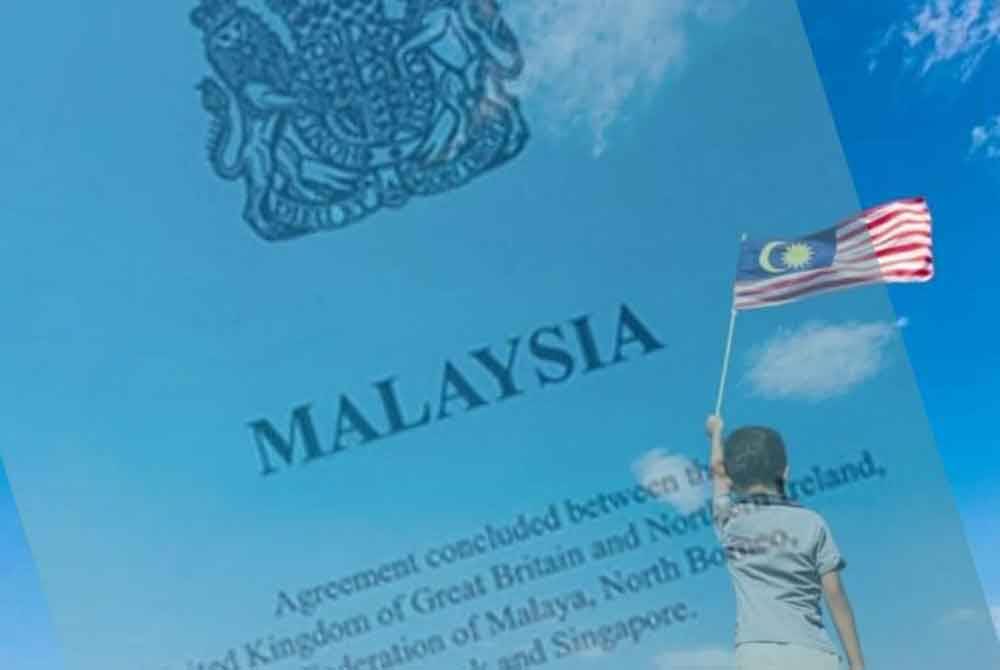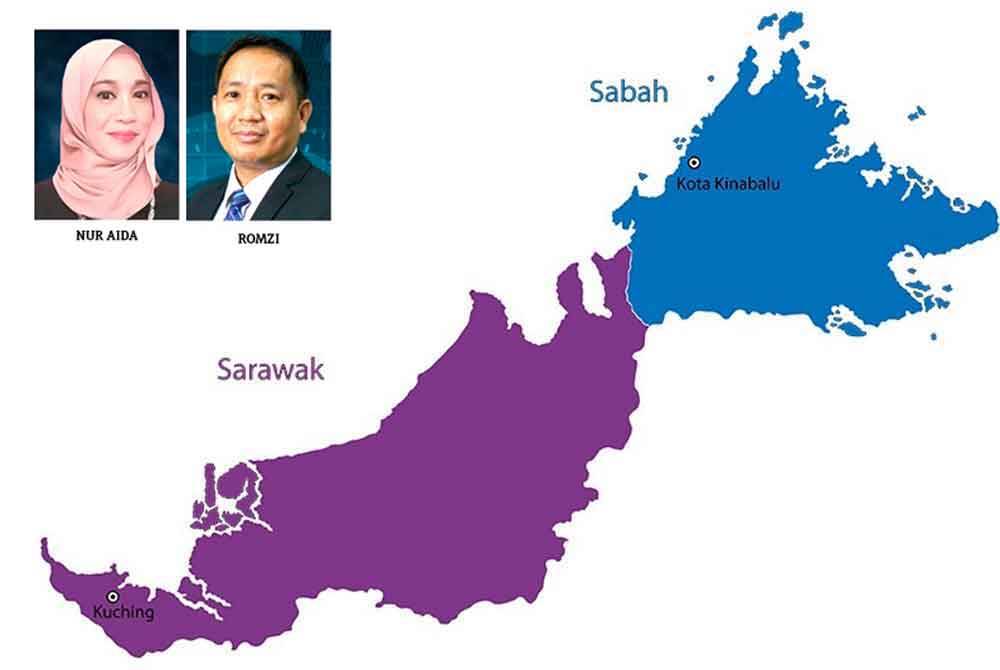MA63: Sabah, Sarawak not ready for full autonomy?
Reflecting on the history of MA63, it was a document signed by the United Kingdom (UK), the Federation of Malaya, North Borneo (Sabah), Sarawak and Singapore, before Singapore opted to leave Malaysia in 1965.

SHAH ALAM - On Dec 14, 2021, the Dewan Rakyat passed the Federal Constitution Amendment Bill related to the Malaysia Agreement 1963 (MA63) after receiving the support of a two-thirds majority of Members of Parliament.
Although its implementation was realised during the administration of the ninth prime minister Datuk Seri Ismail Sabri Yaakob, the greatest credit for driving the MA63 initiative, which had been delayed since the 1980s, should be given to the late former premier minister of Sarawak Tan Sri Adenan Satem.
His aggressive efforts, together with the leadership of the Sarawak state government at the time, reportedly enabled the sixth prime minister Datuk Seri Najib Razak to initiate the process of respecting the demands of MA63 since 2012.
Moving into 2024, the process of fulfilling the demands of MA63 has shown positive developments, particularly in meeting the core demands of the agreement.
Reflecting on the history of MA63, it was a document signed by the United Kingdom (UK), the Federation of Malaya, North Borneo (Sabah), Sarawak and Singapore, before Singapore opted to leave Malaysia in 1965.
MA63, signed on July 9, 1963, in London and registered at the United Nations Secretariat on Sept 21, 1970, encompasses 11 core demands.

These demands were followed by annexes that formed the basis for Act 26/1963 to amend the existing constitution, namely the Constitution of the Federation of Malaya to the Constitution of the Federation of Malaysia, in line with the merger with Sabah and Sarawak.
After various challenges were faced in March, Deputy Prime Minister Datuk Seri Fadillah Yusoff announced that nine items or core demands of MA63 had been fully resolved.
These nine items involve the return of administrative powers over Sipadan and Ligitan Islands to the Sabah state government.
Other matters include the amendment of the Federal Constitution Article 1(2) and Article 160(2) of the Federal Constitution, as well as the granting of powers concerning deep-sea fishing licensing and capture to the Sabah and Sarawak state governments.
Other demands included the recognition of the Public Works Department (PWD) and the Department of Irrigation and Drainage (DID) in Sabah and Sarawak as Technical Departments under Treasury Instruction 182.
The amendment to the Inland Revenue Board (IRB) Act 1995 to appoint representatives from the Sabah and Sarawak state governments as permanent members of the IRB was also resolved, as was the transfer of regulatory control over gas supply in Sabah and the administration of the judiciary in Sabah and Sarawak.
Two other resolved demands were the provision of guidelines for the return of land reserved for federal purposes in Sabah and Sarawak and the transfer of regulatory control over electricity to the Sabah state government.
With the successful resolution of these nine demands, Sabah and Sarawak undoubtedly hope that the remaining 14 demands still under discussion could be finalised soon.

Of the remaining 14 demands, three already had policy decisions made.
These three issues involve the granting of powers over the environment, labour in Sabah and Sarawak and authority concerning the appointment of Judicial Commissioners (Federal Constitution Amendment).
Most importantly, Prime Minister Datuk Seri Anwar Ibrahim guaranteed to swiftly resolve any agreed-upon matters between the federal government and Sabah, as stipulated in MA63, without any delay.
CHALLENGES
Despite the positive outlook, some constitutional experts from Sabah and Sarawak acknowledge the challenges that Putrajaya, the Sabah and Sarawak governments must face to finalise MA63 remain significant.
Universiti Teknologi Mara (UiTM) Sarawak Administrative Science and Policy Studies Faculty senior lecturer Dr Nur Aida Kipli, said these challenges involve complex legal processes that require detailed scrutiny from relevant experts.
“The public needs to be aware that the challenge of resolving the legal aspects of MA63 involves consideration of three important documents that are read together with the agreement, namely the Federal Constitution, the inter-governmental committee (IGC) report and the state constitutions.
“Therefore, this process undoubtedly involves complex legal actions, requiring as detailed scrutiny as possible from legal experts, and I believe at least another 10 to 20 years are needed for MA63 to be resolved.
“In addition, the readiness of the Sabah and Sarawak governments in terms of operations, human resources and finances must also be considered before any core demands of MA63 can be resolved,” she said.
Even if MA63 was finalised, Aida did not believe that success would allow the Sarawak and Sabah governments to boast about becoming fully autonomous states without needing oversight from the federal government.
She said that this was because the Borneo states needed to be realistic about their current economic and financial capabilities, where the development gap between urban and rural areas remains too wide.
“For example, in Sabah and Sarawak, although the state economies are currently booming, their capacity remains among the states with the highest poverty rates in Malaysia.
“Therefore, even if MA63 is finalised, Sabah and Sarawak still yearn for Putrajaya,” she said.
Aida also did not rule out the possibility that the successful realisation of MA63 could drive the formation of a new nation-state within Malaysia, in line with the models of Sabah and Sarawak.

Meanwhile, Universiti Malaysia Sabah (UMS) senior lecturer Associate Professor Dr Romzi Ationg considered the most significant challenge in resolving the remaining MA63 demands to be the financial constraints at the federal government level.
He said that these financial constraints arise as the unity government struggles to reduce the national debt-to-GDP ratio to 60 per cent from the current 64 per cent.
“If MA63 is honoured, the Sabah government may receive around RM5 billion to RM10 billion from the federal government if the promise of a 40 per cent tax revenue rebate is fulfilled.
“With these additional funds, bilateral relations between the state and federal governments will improve, and the sentiment of the Sabah people towards the Peninsula is expected to become more positive,” he said.
However, Romzi acknowledged concerns over differing views among state government leaders on managing the rebate revenue return.
“The major concern among the public is that MA63 could become an agenda to strengthen the personal interests of certain political leaders at the state level. That is why we need mechanisms to prevent the misuse of the 40 per cent rebate funds by these groups,” he said.










